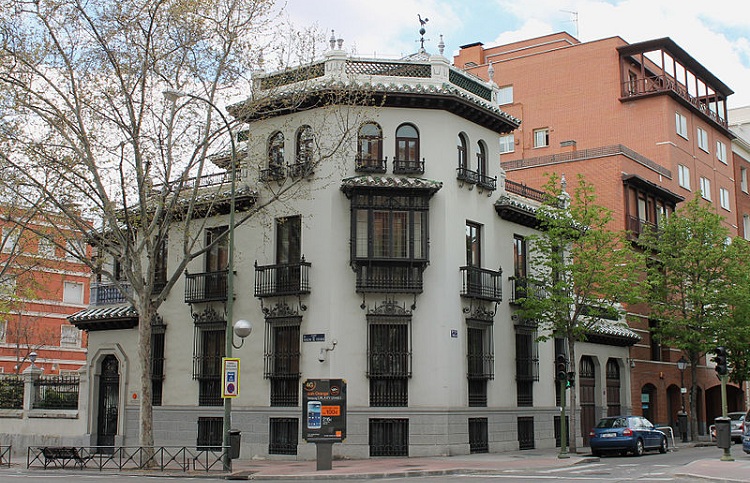The Diplomat
The spread of the COVID-19 pandemic around the world and the success of the vaccination process avoided in 2021 “the international stigmatization of Spain that was initially feared,” a report by the Elcano Royal Institute reveals.
“Taking into account the information available at the end of 2021 both in the health dimension (due to vaccination and the weakening of the virus in its new variants) and in the economic one (in view of the recovery of GDP and employment), the base forecast is that the pandemic will cease to dominate the national and foreign scenario in the new year,” says the report Spain in the world 2022: prospects and challenges of influence and external image, prepared by researchers Ángel Badillo, Carmen González Enríquez, Ignacio Molina and Jorge Tamames and made public last December 29.
“That does not mean that the situation of exceptionality is fading away,” since “COVID-19 has revealed an unpredictable world and has accelerated previous trends that point to profound geopolitical, economic and social transformations,” it continues. “The rivalry between China and the US, climate and global health vulnerability, the digital revolution, the growing preference for strategic autonomy instead of unrestricted commercial and technological interconnection or the rise of state interventionism after decades of deregulation are phenomena that are now more clearly perceived than two years ago,” it adds.
In Elcano’s opinion, “the impact of this complexity on Spain’s international position is difficult to pinpoint”, since, despite the “desire” of the Government “to promote a more ambitious foreign action in the medium and long term” through the fourth National Security Strategy and the new Foreign Strategy, “the short-term situation has been adverse for the deployment of leadership, anticipation and projection”.
“The extension of the incidence of the pandemic throughout the world and the success of the vaccination process have avoided in 2021 the international stigmatization of Spain that was feared at the beginning, but the truth is that these two years have again shown important economic weaknesses of the country, such as an insufficient industrial and innovation capacity, a high dependence on tourism and fiscal problems only temporarily postponed thanks to European funds”, warn the authors.
Added to this are “the convulsive domestic political climate”, which is “another factor that prevents taking better advantage of existing opportunities in foreign policy and in the EU”, and “the operational management of external action”, which “has also been subject to discontinuities during this time”.
Five ministers in five years
“With the appointment of José Manuel Albares as Minister of Foreign Affairs in July 2021, there are now five incumbents in the post since 2016 and five years marked with the imprint of the change of stage,” reads the report. “Each of these relays has been accompanied by the corresponding proposal to renew plans, organizational charts and teams, without there then being much time for the novel emphases to bear fruit,” the text continues. “Moreover, the work of the new team is marked by an attractive milestone but one that further narrows the timescale: the rotating presidency of the Council of the EU during the second half of 2023,” it adds.
In any case, warns the Think Tank, “in the run-up to 2022, Spain’s overall position on the international and European stage will be marked by the pace at which the economy recovers and the capacity to deploy reforms in the green and digital sphere under the Next Generation EU funds”.
From a more political point of view, the foreign agenda will be marked by “the interlocution with a renewed Franco-German axis, the organization in Madrid of the NATO summit, the negotiation of the future relationship of Gibraltar with the EU, the always difficult balances in the Maghreb between Algiers and Rabat, the Spanish contribution to the European foreign policy with respect to the China-US competition or the Russian aggressiveness in Ukraine and the definition of an approach adapted to a Latin America governed mostly by left-wing presidents”.
“These are issues susceptible to politicization, where a tension operates between the dominant desire in the PSOE to address them as a matter of State that does not arouse criticism from the opposition, and the growing pressures from Unidas Podemos for the coalition’s foreign and security policy to set an ideological profile, at least in Latin America and in relation to Western Sahara”, the report continues. “It is foreseeable that the first line will be imposed, even if that means internal discrepancies in the Government”, affirm the authors of the document.
As for Spain’s international image, the study indicates that “both the Barometer of Spain’s Image and the report on Spain’s Reputation show a decline in the country’s valuation within a framework of a general fall in the reputation of all the others“. In any case, it warns, “since this decline has similarly affected the vast majority of the countries evaluated by Country RepTrak®, Spain’s position has hardly changed”. “Spain remains at the head of international reputation, above the United Kingdom, France, Germany and Italy,” it adds.
Regarding the impact of Spain’s image on tourism, it continues, “if in 2020 Spain’s position in tourist attractiveness fell to 14th place (data collected in the G8 countries), in 2021 it had recovered to ninth”, a recovery that, in good part, “is due to the spread of the pandemic to the entire EU and the rest of the planet”. In this context, “Spain’s good performance in vaccinating its population will lead to an increase in its tourist attractiveness until at least recovering its pre-pandemic position (seventh in 2019)”.







